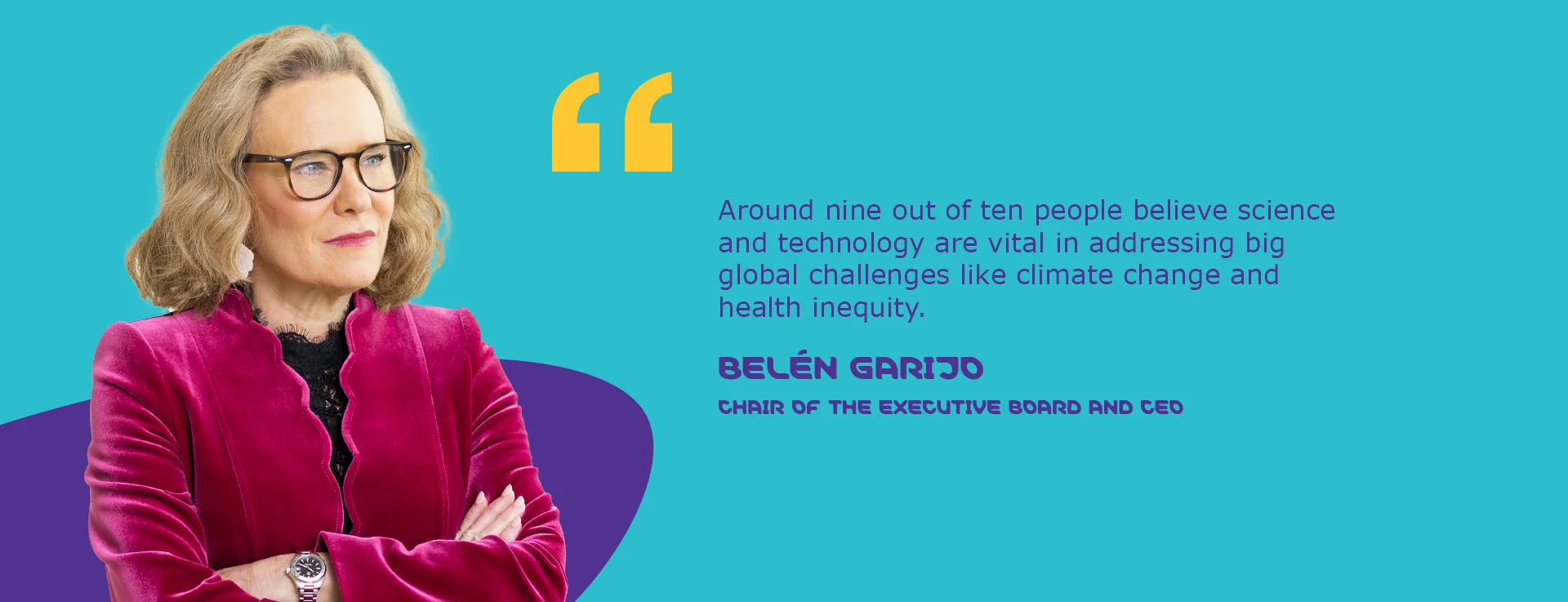
Our global society faces many significant risks in 2024, including the devastating wars in the Middle East and Europe, climate denialism, populism, and political extremism. These and other forces threaten to widen fragmentation and weaken solidarity across our communities.
With so much change and uncertainty surrounding us, many people are becoming increasingly selective about who or what they're prepared to trust, and what's worth fighting for. It's therefore insightful that people today are most trusting of scientists out of all societal leadership roles, and that businesses, especially family-led ones, are the most trusted of all institutions1. Furthermore, around nine out of ten people believe science and technology are vital in addressing big global challenges like climate change and health inequity2.
That's why I believe our global society is entering a new era of trust-driven leadership. Three things will largely determine the ability of any person or organization to influence the future: the history of their actions, the strength of values, and their ability to unite others behind a common purpose. We are well-positioned to thrive in this era as a globally diversified science and technology company with a proud 355-year history of advancing human progress.
We acknowledge our special leadership responsibility to demonstrate the potential of science as a powerful force for good. This 2023 Sustainability Report reflects the growing size and scale of our ambitions. It also highlights our commitment to be fully accountable for our performance and transparent in how we measure our progress.
After reviewing this report, I had two immediate reactions. My first feeling was tremendous pride in what our energetic teams across the globe have achieved. We've come a long way since 2020 when we committed ourselves to three bold overall goals. By 2030, we aim to fully integrate sustainability into our value chains and achieve human progress for more than one billion people through sustainable science and technology. And by 2040, we will achieve climate neutrality. I am pleased to report that we remain on track to complete these three goals.
Here are a few examples of the progress we made toward these goals in 2023:
- We reduced our direct (scope 1) and indirect (scope 2) greenhouse gas emissions by nearly 17% compared with the previous year.
- We obtained more than half of our electricity purchased worldwide from renewable sources for the first time.
- We signed virtual power purchase agreements (VPPAs) that will ensure 100% of purchased electricity in Europe, 90% in North America, and 70% worldwide will be covered by renewable energy certificates from 2025.
- We increased the percentage of women in leadership positions worldwide to a record high of 39%.
- And, we were amongst the world's top five pharmaceutical companies enabling access to our medicines in low and middle-income countries.
Yet despite feeling such tremendous pride in these and other achievements during 2023, I also felt there was no time to rest upon these accomplishments. Because while we've made a good start on our journey to transform our company into a global sustainability leader, there is still a long way to go. In particular, we must continue to explore opportunities to accelerate existing programs and enter new areas where we can also make a significant impact.
I'm therefore pleased about how we further enhanced our sustainability strategy in 2023. We've introduced new water and waste management targets and strengthened our commitment to biodiversity and circular operations. Furthermore, we're embedding our social responsibilities more deeply into our ways of working and decision-making.
However, embedding sustainability into every part of our business still isn't enough. In paraltheirlel, we must do even more to help our customers, partners, suppliers, and industry peers to advance their own sustainability targets. There are three main ways we're making this a reality.
First, to ensure we fully integrate sustainability into our value chains, we are gaining greater transparency into the performance of our global supplier network. Two-thirds of relevant suppliers worldwide are now covered by a valid sustainability assessment – a significant increase compared to the prior year. In addition, 2023 is the first year in which we can include primary emission data from our service providers (scope 3.1) into our calculation methodology.
Second, we are strengthening our focus on creating sustainable innovations and technologies for our customers. In Life Science for example, we increased our portfolio of Greener Alternative Products to 2,500 products in 2023, a 34% increase compared to the prior year.
Third, we are closely collaborating with our peers and partners in groups such as the Sustainable Markets Initiative Health Systems Taskforce to leverage our collective power to accelerate sustainable change across entire industries.
Amazing things can happen when you set targets and commit to them with the right mix of global and local partners. Consider, for example, our efforts to eliminate the neglected tropical disease schistosomiasis.
Over the last 15 years, we have donated over two billion Praziquantel tablets and supported many other programs to fight this devastating parasitic disease across Sub-Saharan Africa and other tropical countries. After reaching 84 million patients last year and securing approval for a new treatment option for children between three months and six years old, we and our many partners are on track to achieve our ambitious goal of eliminating schistosomiasis as a public health problem by 2030.
Being committed to sustainability is no longer just a social mandate but also a business imperative. For companies like ours that strive to remain ahead of the curve, we expect our actions will make us an even more trusted partner to customers and patients and a more attractive place for top talent to make an impact.
Thank you for your ongoing trust and support. I look forward to keeping you updated on our progress.
Belén Garijo
Chair of the Executive Board and CEO
1 The 2024 Edelman Trust Barometer
2 2023 3M State of Science Index
